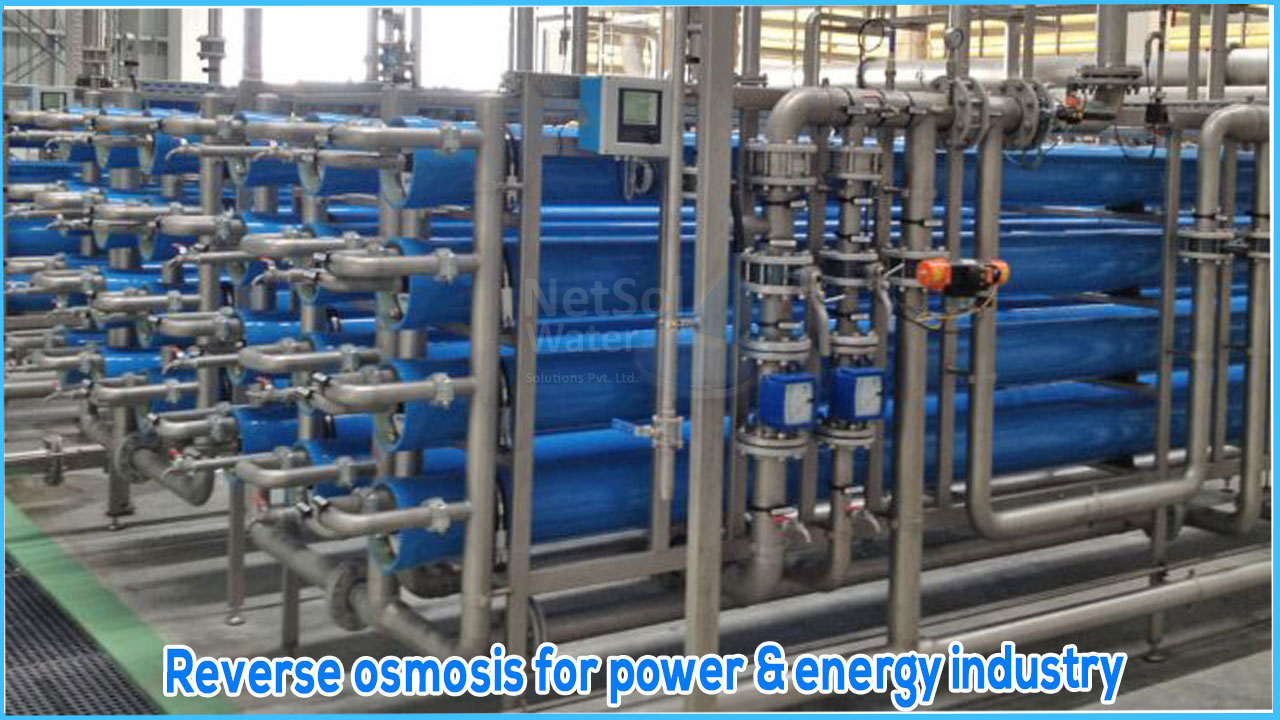Reverse osmosis for power & energy
Power and energy plants can be optimized by reducing overall capital costs, producing greater efficiency in power plants through pre-treatment filtration, reverse osmosis, conventional ion exchange and electro deionization systems. This system imparts lesser load to various machine components used and thereby increases the overall functionality of the system. The key factors that should be kept in mind whilst choosing a preliminary treatment system for the plant are as:
·Water Contamination
·Water Quality Required
·Efficiency of the Treatment System
·Economy
·Electricity and Operating Costs etc.
The power and energy plants have various sub component systems which may require different specifications for their water demand. The water source to fulfil the demand should be checked in order to ascertain best amongst all the options available in the market. Last but not least the operating costs and electricity charges for the treatment system should be checked as well.
Reverse Osmosis System in an Energy Industry
Reverse Osmosis has been one of the best treatment systems considering power and energy industry since it requires water for its boiler feeds. Various other benefits have been discussed briefly below:
WATER COOLING
Because high purity water absorbs large amounts of heat, it is good for taking heat away from generators as well as bringing it to them. Many types of motors and electric generators build large amounts of heat as they operate - so much heat that they can literally destroy themselves from the inside out. Very much like the radiator in your car, high purity water prevents a generator from damaging itself by absorbing the heat and piping it away.
CONDENSATE POLISHING SYSTEMS
Condensate polishing systems are used as an effective water treatment strategy for the purposes of saving power, energy, and chemical costs. These systems are also utilized for extending the life of boiler equipment and improving performance. This is done through reducing the amount of impurities in condensate return water, which can cause damage to pricey boiler equipment. Condensate polishing systems are attached with ion exchange polishers with specifically designed resins for applications with immense heat.
BOILER FEED WATER
Boiler Feed Water (sometimes referred to as ultrapure water) is water that needs to be as close to absolute purity as possible for the purpose of heat absorption. Depending on the boiler pressure, treated water may range from simple ion exchange, to advanced double pass reverse osmosis system, followed by electro deionization. Feeding low quality water into a boiler can cause significant and sometimes serious problems if not detected and corrected immediately.
Boilers heat water to cause it to evaporate into extremely hot steam, and impurities such as minerals and gasses in water can cause this process to become less efficient, wear on the generator that takes the evaporated water, and corrosion on equipment exposed to it. Because of this, it is very important to make sure the water used in Boiler Feeds is as pure as possible.
When an RO system can't reach the required purity's alone, a deionizing unit works best in conjunction to reach the purest thresholds of water. For high-pressure boiler applications, a double pass reverse osmosis system followed by an electro deionization (EDI) is recommended.




